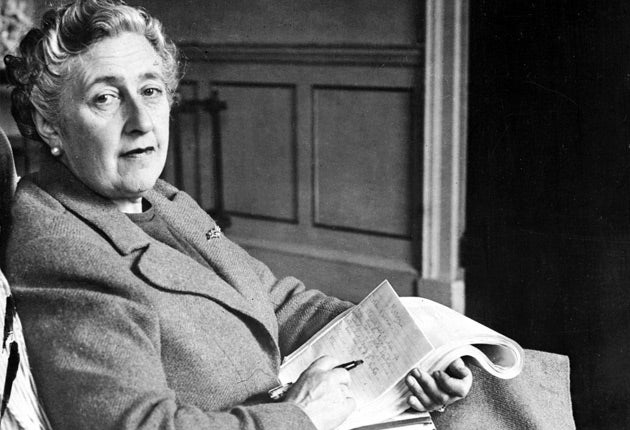Agatha Christie books, including Poirot and Miss Marple mysteries, to be rewritten for modern sensitivities
The n-word and the term ‘Oriental’ are among the language being removed from new editions
A number of Agatha Christie novels have been rewritten for modern sensitivities, with racist terms removed and passages of text amended.
The news comes weeks after books by Roald Dahl and Ian Fleming were similarly edited following sensitivity reviews.
Christie’s Poirot and Miss Marple mysteries have undergone edits such that original passages have either been reworked or removed in new editions published by HarperCollins, as reported by The Telegraph.
According to the publication, these new editions were either already released in 2020 or are set to be released. Insiders have said these editions used the services of sensitivity readers.
The Telegraph reports numerous changes to works from 1920 to 1976, with passages containing descriptions, insults or references to ethnicity having been altered – particularly for characters not from the UK.
Vocabulary has also been changed. The term “Oriental”, for example, has been removed, along with other racial descriptors in some instances.
In the 1937 Poirot novel Death on the Nile, a passage describing a Black servant as grinning because he understands the need to stay silent about an incident, no longer relays that he is Black or smiling. Instead, he is simply “nodding”.
The edits include amendments made to the inner monologue of characters such as Miss Jane Marple or Hercule Poirot.

In a new edition of the Miss Marple novel A Caribbean Mystery (1964), the narrator praises a West Indian hotel worker’s “lovely white teeth”. This has now been cut, along with similar references to “beautiful teeth”.
The same book also no longer describes a female character with “a torse of black marble such as a sculptor would have enjoyed”.
A passage in which a character fails to see a Black woman in the bushes at night has also been removed.
The n-word has also been cut, both in cases of Christie’s prose and the dialogue spoken by her characters.
In Death on the Nile (1937), references to the Nubian people have been cut, with “the Nubian boatman” now referred to as “the boatman”.

Christie’s 1920 debut novel The Mysterious Affair at Styles has been amended such that Poirot’s comment that another character is “a Jew, of course” no longer appears.
A young woman described as being “of gypsy type” is now only referred to as “a young woman”.
In the original 1979 short story collection Miss Marple’s Final Cases and Two Other Stories, Christie wrote of an angry judge with “his Indian temper”. This now reads “his temper”.
References to “natives” have either been replaced with “local” or removed altogether.
Christie’s books have previously been altered. Her 1939 novel And Then There Were None was originally released under another title that included a racist term.

The Independent has contacted Agatha Christie Ltd, a company run by the writer’s great-grandson James Prichard understood to handle licensing for her literary and films rights, and HarperCollins for comment.
Last month, it was reported that Roald Dahl’s books were also being rewritten to remove language considered offensive.
The Queen Consort forced publisher Puffin UK to back down on its censorship after she intervened in the row over the decision to edit Dahl’s words.
Soon after, it was reported that Ian Fleming’s James Bond novels are also being edited, with racial references and racist language either amended or cut following a sensitivity review.
Join our commenting forum
Join thought-provoking conversations, follow other Independent readers and see their replies
Comments


Bookmark popover
Removed from bookmarks